Making a mockery of democracy?
U of S experts in policy, law and political science weigh in on the American election.
By James ShewagaFrom immature insults and boorish behavior to racist remarks and radical rhetoric, Republican presidential nominee Donald Trump has polarized the political process in the United States like never before.
University of Saskatchewan experts have watched the controversial campaign from afar with a mixture of disbelief and dismay. While Democratic nominee Hillary Clinton faces her own challenges on the campaign trail—most notably relentless Republican attacks about her deleted emails— Trump’s troubling tweets and daily diatribes dominate the daily news cycle. The recent revelations of his lewd language caught on tape and accusations of sexual harassment and assault are just the latest in a long list of shocking stories as the election approaches.
Few observers took him seriously at first, but Trump took the U.S. election in a whole new direction when he shockingly secured the Republican nomination.
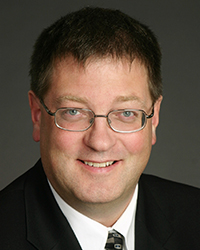
“Like almost all observers, I knew that it was impossible that Trump would win the nomination. I was wrong. So much for my abilities as a political pundit,” said U of S public policy professor Ken Coates. “That he continues to do remarkably well in the polls is a testament to the weakness of Hillary Clinton as a presidential candidate and to the unpredictability of the American electorate. This is an election like no other.”
Indeed. The Nov. 8 election features the career politician in Clinton versus the Washington outsider in Trump. Clinton could become the first female president in American history, although many observers note that it should not have taken this long, given the success of international leaders like former British Prime Minister Margaret Thatcher and current German Chancellor Angela Merkel.
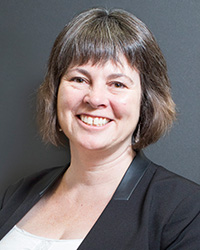
“Some Americans are excited about the prospect of electing a female president,” said U of S political studies associate professor Carin Holroyd. “While it would be a significant milestone, it is important to know that many other countries have or have had female presidents or prime ministers. So in that sense the possible election of Hillary Clinton is far from earth-shaking.”
What would be earth-shaking would be the election of Trump, a bombastic multi-millionaire real estate developer straight out of reality TV. Trump has garnered priceless publicity from mainstream media outlets which have largely failed the electorate, according to American historian Paul Finkelman, the Ariel F. Sallows Visiting Professor of Human Rights Law in the U of S College of Law.
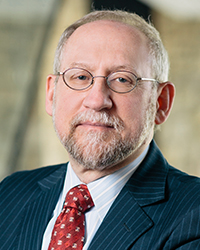
“I suppose I am not surprised (at Trump’s rise) given the intense ‘pass’ the media gives to Trump,” said Finkelman, who recently lectured on campus about the U.S. electoral system. “He is persistently inaccurate and/or dishonest in much of what he says, and most of the major media persistently refuses to call him on what he says. Furthermore, one media outlet—Fox News—has become essentially a propaganda outlet for hostility to Clinton.”
Trump’s popularity soared despite daily gaffes, controversy over not releasing his tax returns, and campaigning on a platform many pundits consider radical and racist. He’s vowed to build a wall on the southern border (and have Mexico pay for it), deport millions of illegal immigrants and prevent Muslims from entering the country. He has professed admiration for tyrannical leaders like autocratic Russian president Vladimir Putin, encouraged Russia to commit espionage by hacking his opponent’s emails, insulted former prisoners of war like Republican John McCain and even publicly criticized the parents of an American Muslim soldier killed while serving in Iraq.
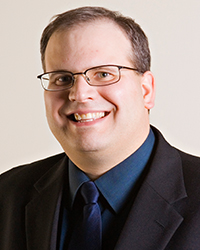
“The idea of building a wall is very popular among Trump’s base, but it would be very expensive to build and there is no way Trump could force ‘Mexico to pay for it,’ despite what he says. As for the deportation plan, it is simply outrageous and impractical,” said U of S public policy professor Daniel Beland, who is appalled by Trump’s pledge to halt Muslim immigration. “This abhorrent proposal is not only racist but counter-productive from a foreign policy standpoint, as the U.S. cannot afford the massive deterioration of its relationship with the Muslim population that such a ‘policy’ would trigger.”
It’s in the area of foreign affairs that a Trump presidency would most concern U of S assistant professor Colleen Bell, an expert in international relations, security and counter-terrorism. While Clinton has made mistakes of her own, Bell said she is infinitely more experienced and qualified than Trump.
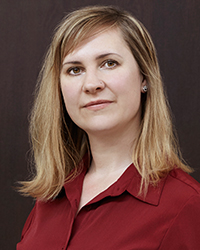
“Unlike Trump, if you ask Clinton a question about her foreign policy position on ‘X’, she has the capacity to provide a substantial, informed and intelligible response,” said Bell. “One may disagree with her, but at least there is substance to work with. With Trump, one is quite likely to get a jumble of words that at best loosely correspond to ‘X’ policy and display little to no awareness of the issue at hand . . . Trump’s foreign policy pronouncements suggest an incredible lack of reasoning or historical awareness.”
Most observers contend a Clinton presidency would largely mean status quo for Canada-U.S. relations, while a Trump triumph could cause chaos. Trump’s radical policies would also serve as a stark contrast to Canada’s celebrated multicultural approach.
“A Trump presidency could, perhaps unexpectedly, finally bring Canada front and centre in the American consciousness, providing an alternate model of how diverse and successful societies can function,” said Holroyd.
An avowed climate change denier, Trump wants to pull the United States out of the recently signed Paris climate accord, scrap the NAFTA trade agreement between Canada, Mexico and the U.S., and publicly questions America’s commitment to NATO. Coates said it’s all cause for concern for Canada.
“It is still difficult to take seriously the prospect of a Trump presidency,” said Coates. “The simple answer to the question of what a Trump presidency would mean is ‘Who knows?’ We do not know what he would be like as a president, but I do not think we would like what we would see.”

